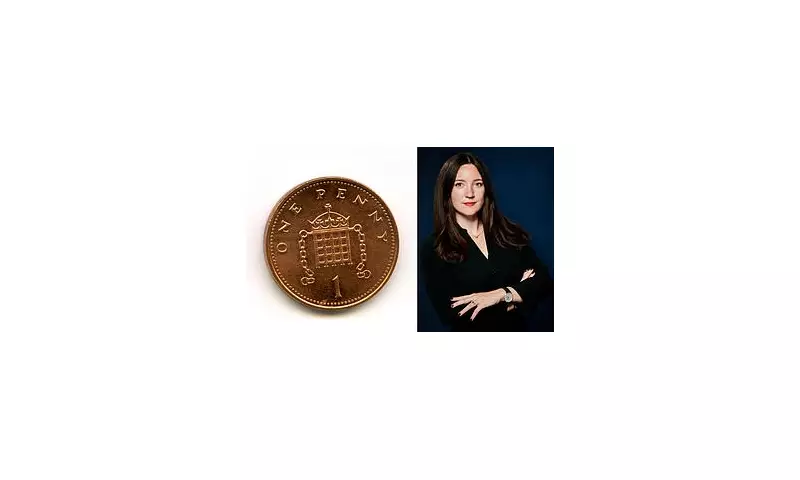
More than half a million British workers are set to fall victim to punishing tax traps that effectively penalise them for receiving pay rises, as Chancellor Rachel Reeves' extended freeze on income tax thresholds takes hold.
The £100,000 Cliff Edge: Where 1p Costs £38,000
One of the most severe distortions in the UK tax system awaits those earning between £100,000 and £125,140 annually, where workers face an effective marginal tax rate of 60 percent. This occurs because the personal allowance - the £12,570 portion of income everyone can earn tax-free - is gradually withdrawn at a rate of £1 for every £2 earned above £100,000.
According to government estimates obtained by wealth manager Rathbones, an additional 493,000 people will be caught by this rate over the next four years. The number of taxpayers earning above the £100,000 threshold is projected to increase from 1.8 million last tax year to 2.3 million by 2029/30.
Stephanie Ebner, a financial planner at Rathbones, commented: "The £100,000 tax trap represents one of the most baffling quirks in our tax system. Originally intended to target only the very highest earners, it now ensnares thousands of workers who were never meant to be caught."
The Childcare Catastrophe: 380 Million Percent Marginal Rate
The most extreme financial penalty emerges for parents with young children who cross the £100,000 earnings threshold. In what might be the most punishing tax cliff edge in the British system, parents earning £99,999.99 could lose £38,000 worth of tax breaks and free childcare if their salary increases by just 1p.
Since September, parents with children aged nine months to three years have been entitled to 30 hours of weekly free childcare. However, if either parent earns £100,000 or more, the family loses eligibility entirely. This is separate from the 15 hours of free childcare available to all parents of three and four-year-olds regardless of income.
Parents exceeding this threshold also forfeit a government top-up worth up to £2,000 annually toward childcare costs. Wealth manager Quilter calculates that a family with two children in nursery would miss out on £33,328 in government support if one parent's income rises marginally above £100,000.
The Middle-Income Squeeze: 98% Tax Rates
Another dramatic tax spike affects parents earning £60,000 annually. According to Tax Policy Associates, middle-class families with three children face marginal tax rates as high as 98.2 percent on income above £60,000. This means they keep only £1.80 from every additional £100 earned.
This punishing rate results from the interaction between tax thresholds and benefit cut-off points. Child benefit begins to decrease when one parent earns £60,000 and is completely withdrawn at £80,000. The 'high income child benefit charge' imposes a 1 percent reduction in total benefit for every £200 of income over £60,000.
When combined with student loan repayments - which add a 9 percent effective tax rate for those earning above £28,470 who started university from 2012 onward - the overall marginal rate reaches 98 percent for some families.
Escaping the Tax Traps: Practical Solutions
Financial experts suggest several strategies to reduce taxable income without refusing pay rises. Charlotte Kennedy, a financial planner at Rathbones, advises workers can duck back under thresholds by increasing pension contributions or utilising salary sacrifice schemes.
Salary sacrifice arrangements allow employees to exchange part of their salary for non-cash benefits like pension contributions, company cars, or cycle-to-work schemes. This reduces both income tax and National Insurance liabilities for most workers.
Making charitable donations provides another method to avoid losing childcare benefits, as your basic rate tax band increases by the value of the charitable gift.
However, workers should note the Chancellor's announcement of a £2,000 cap on pension contributions made via salary sacrifice without paying National Insurance, which may affect planning strategies.
Had income tax thresholds kept pace with inflation, workers would only begin losing their personal allowance at £154,000 today, and childcare perks would be withdrawn at £133,000, according to Quilter analysis. The current frozen thresholds mean families with two young children earning between £125,140 and £132,999 are £38,356 worse off than under inflation-adjusted systems.
Shaun Moore, financial planning expert at Quilter, summarised: "The £100,000 cliff edge has evolved into one of the most damaging distortions within our tax system, creating perverse incentives that actively discourage career progression and higher earnings."





